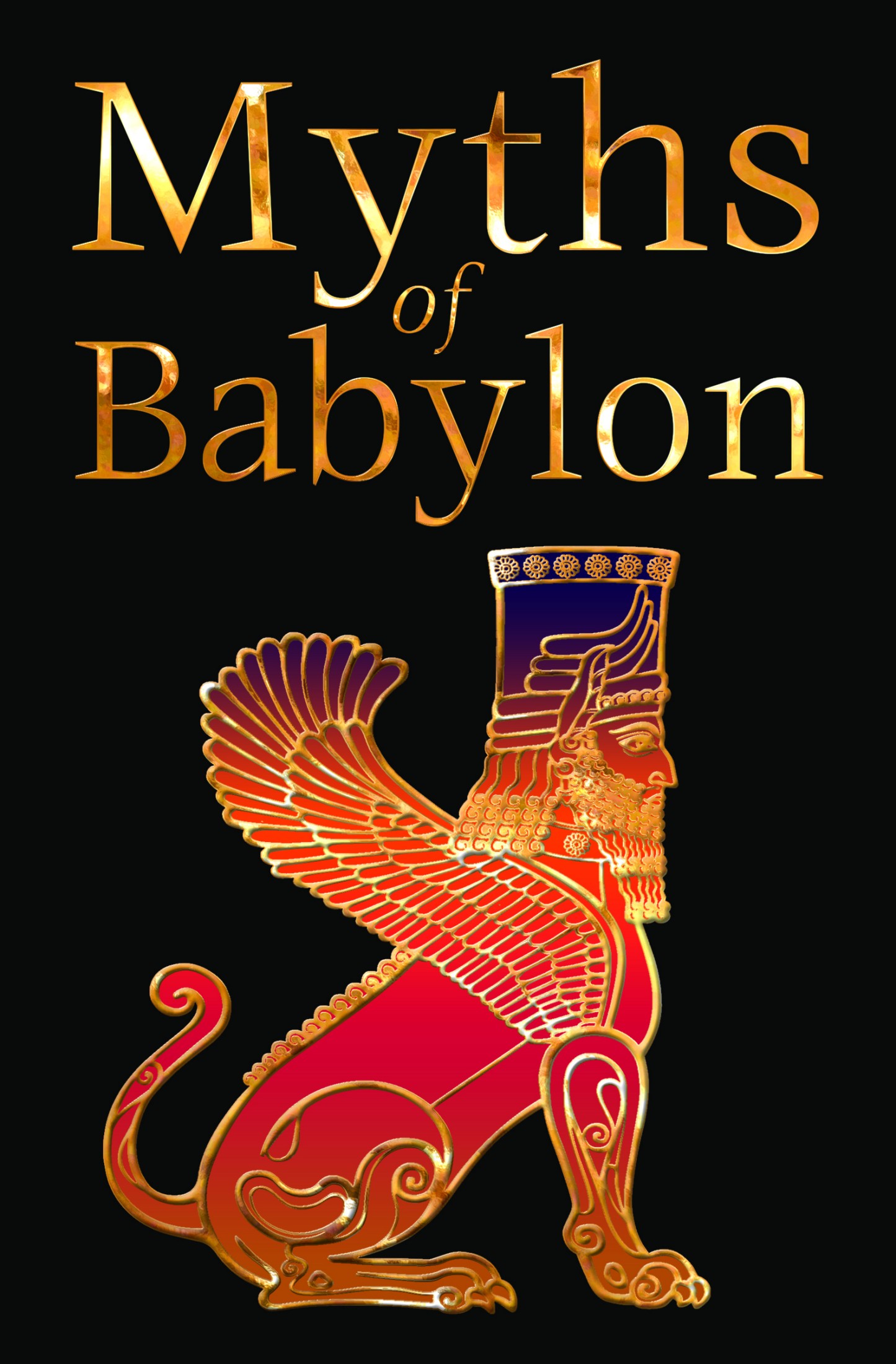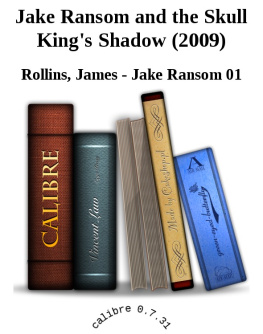Jake Jackson - Jake Jackson - Myths Of Babylon
Here you can read online Jake Jackson - Jake Jackson - Myths Of Babylon full text of the book (entire story) in english for free. Download pdf and epub, get meaning, cover and reviews about this ebook. year: 2018, publisher: Flame Tree Publishing, genre: Art. Description of the work, (preface) as well as reviews are available. Best literature library LitArk.com created for fans of good reading and offers a wide selection of genres:
Romance novel
Science fiction
Adventure
Detective
Science
History
Home and family
Prose
Art
Politics
Computer
Non-fiction
Religion
Business
Children
Humor
Choose a favorite category and find really read worthwhile books. Enjoy immersion in the world of imagination, feel the emotions of the characters or learn something new for yourself, make an fascinating discovery.

- Book:Jake Jackson - Myths Of Babylon
- Author:
- Publisher:Flame Tree Publishing
- Genre:
- Year:2018
- Rating:5 / 5
- Favourites:Add to favourites
- Your mark:
- 100
- 1
- 2
- 3
- 4
- 5
Jake Jackson - Myths Of Babylon: summary, description and annotation
We offer to read an annotation, description, summary or preface (depends on what the author of the book "Jake Jackson - Myths Of Babylon" wrote himself). If you haven't found the necessary information about the book — write in the comments, we will try to find it.
Jake Jackson - Myths Of Babylon — read online for free the complete book (whole text) full work
Below is the text of the book, divided by pages. System saving the place of the last page read, allows you to conveniently read the book "Jake Jackson - Myths Of Babylon" online for free, without having to search again every time where you left off. Put a bookmark, and you can go to the page where you finished reading at any time.
Font size:
Interval:
Bookmark:

This is a FLAME TREE Book
Publisher & Creative Director: Nick Wells
Contributors, authors, editors and sources for this series include:
Loren Auerbach, Norman Bancroft-Hunt, E.M. Berens, Katharine Berry Judson, Laura Bulbeck, Jeremiah Curtin, O.B. Duane, Dr Ray Dunning, W.W. Gibbings, H. A. Guerber, Jake Jackson, Joseph Jacobs, Judith John, J.W. Mackail, Donald Mackenzie, Chris McNab, Professor James Riordan, Sara Robson, Rachel Storm, K.E. Sullivan, Epiphanius Wilson, E.T.C. Werner.
FLAME TREE PUBLISHING
6 Melbray Mews, Fulham, London SW6 3NS, United Kingdom
First published 2018
Copyright 2018 Flame Tree Publishing Ltd
18 20 22 21 19
1 3 5 7 9 8 6 4 2
PRINT ISBN: 978-1-78664-763-4
EBOOK ISBN:
All rights reserved. No part of this publication may be reproduced, stored in a retrieval system, or transmitted in any form or by any means, electronic, mechanical, photocopying, recording or otherwise, without the prior written permission of the publisher.
The cover image is copyright 2018 Flame Tree Publishing Ltd
All images copyright Flame Tree Publishing 2018
except Shutterstock.com: Babin, John Lock, and vectortatu
Introducing our new fiction list:
FLAME TREE PRESS | FICTION WITHOUT FRONTIERS
Award-Winning Authors & Original Voices
Horror, Crime, Science Fiction & Fantasy
www.
Contents

Series Foreword
Introduction to Ancient Babylonian Culture
History, Religion & Myth
The Akkadians
The Semite Conquerors
Sargon, A Babylonian Conqueror
The High-Priest Gudea
Hammurabi the Great
A Court Murder
Tiglath-Pileser
Semiramis the Great
The Second Assyrian Empire
Assur-bani-pal: Sardanapalus the Splendid?
The First Great Library
The Last Kings of Assyria
Nebuchadnezzar
The Last of the Babylonian Kings
The History of Berossus
Berossus Account of the Deluge
The Tower of Babel
Nimrod, the Mighty Hunter
The Babylonica and the Tale of Sinonis and Rhodanes
The Sacred Literature of Babylonia
Babylonian Myths of Creation
The Birth of the Gods
Merodach Battles Tiawath
The Writings of Oannes
Early Babylonian Gods
Spirits and Gods
Totemism in Babylonian Religion
The Great Gods
Bel
Bel and the Dragon
Beltis
Nergal
The Tale of Dibarra the Destroyer
Shamash
Ea
The Story of Adapa and the South Wind
Anu
Ishtar
The Descent of Ishtar into Hades
Nin-Girsu
Bau
Nannar
Nannar in Decay
Of the Underworld: Aralu, or Eres-ki-Gal
Dagon
Nirig, or Enu-Restu
The Gilgamesh Epic
The Birth of Gilgamesh
An Epic in Frgaments
Gilgamesh as Tyrant
The Beguiling of Eabani
Gilgamesh meets Eabani
The Monster Khumbaba
Ishtars Love for Gilgamesh
The Bull of Anu
The Death of Eabani
The Quest of Gilgamesh
Gilgamesh and Ut-Napishtim
The Deluge Myth
The Quest Continues
Later Babylonian Gods
Nebo (Nabu)
Tashmit
Shamash and Innana
Hadad
Ea in Later Times
Zu
Bel
Dawkina
Anu as Individual
The Great God Merodach And His Cult
Assyrian Gods
Asshur
Ishtar
Ninib the Assyrian Nin-Girsu
Dagan
An
Ramman
Shamash
Sin
Nusku of the Brilliant Sceptre
Bel-Merodach
The Assyrian Bel and Belit
Nabu and Merodach
Ea
Dibarra
Lesser Gods
Babylonian Star-Worship
Legend of the Origin of Star-Worship and Idolatry
Planets identified with Gods
Magic, Demonology and Superstition
Priestly Magicians, Wizards and Witches
A Toothache Myth
The Word of Power
Babylonian Vampires
Gods Once Demons
Purification
The Chamber of the Priest-Magician
The Magic Circle
Babylonian Demons
Taboo
Popular Superstitions
Omens and The Practice of Liver-reading
Mythological Monsters and Animals
Winged Bulls
The Dog in Babylonia
Gazelle and Goat Gods
The Invasion of the Monsters
The Eagle
Tales of Kings
Tiglath-pileser II
The Autobiography of Assur-bani-pal
Esar-haddon, A Likeable Monarch
Assur-Dan III and the Fatal Eclipse
Shalmaneser I
A Babylon-Inspired Fairy Tale:
The Princess of Babylon
Chapter 1:
Royal Contest for the Hand of Formosanta
Chapter 2:
The King of Babylon Convenes His Council
Chapter 3:
Royal Festival Given in Honour of The
Kingly Visitors
Chapter 4:
The Beautiful Bird is Killed by The King of Egypt
Chapter 5:
Formosanta Visits China and Scythia in
Search of Amazan
Chapter 6:
The Princess Continues Her Journey
Chapter 7:
Amazan Visits Albion
Chapter 8:
Amazan Leaves Albion to Visit the Land of Saturn
Chapter 9:
Amazan Visits Rome
Chapter 10:
An Unfortunate Adventure in Gaul
Chapter 11:
Amazan and Formosanta Become Reconciled
Series Foreword
Stretching back to the oral traditions of thousands of years ago, tales of heroes and disaster, creation and conquest have been told by many different civilizations in many different ways. Their impact sits deep within our culture even though the detail in the tales themselves are a loose mix of historical record, transformed narrative and the distortions of hundreds of storytellers.
Today the language of mythology lives with us: our mood is jovial, our countenance is saturnine, we are narcissistic and our modern life is hermetically sealed from others. The nuances of myths and legends form part of our daily routines and help us navigate the world around us, with its half truths and biased reported facts.
The nature of a myth is that its story is already known by most of those who hear it, or read it. Every generation brings a new emphasis, but the fundamentals remain the same: a desire to understand and describe the events and relationships of the world. Many of the great stories are archetypes that help us find our own place, equipping us with tools for self-understanding, both individually and as part of a broader culture.
For Western societies it is Greek mythology that speaks to us most clearly. It greatly influenced the mythological heritage of the ancient Roman civilization and is the lens through which we still see the Celts, the Norse and many of the other great peoples and religions. The Greeks themselves learned much from their neighbours, the Egyptians, an older culture that became weak with age and incestuous leadership.
It is important to understand that what we perceive now as mythology had its own origins in perceptions of the divine and the rituals of the sacred. The earliest civilizations, in the crucible of the Middle East, in the Sumer of the third millennium bc , are the source to which many of the mythic archetypes can be traced. As humankind collected together in cities for the first time, developed writing and industrial scale agriculture, started to irrigate the rivers and attempted to control rather than be at the mercy of its environment, humanity began to write down its tentative explanations of natural events, of floods and plagues, of disease.
Early stories tell of Gods (or god-like animals in the case of tribal societies such as African, Native American or Aboriginal cultures) who are crafty and use their wits to survive, and it is reasonable to suggest that these were the first rulers of the gathering peoples of the earth, later elevated to god-like status with the distance of time. Such tales became more political as cities vied with each other for supremacy, creating new Gods, new hierarchies for their pantheons. The older Gods took on primordial roles and became the preserve of creation and destruction, leaving the new gods to deal with more current, everyday affairs. Empires rose and fell, with Babylon assuming the mantle from Sumeria in the 1800s bc , then in turn to be swept away by the Assyrians of the 1200s bc ; then the Assyrians and the Egyptians were subjugated by the Greeks, the Greeks by the Romans and so on, leading to the spread and assimilation of common themes, ideas and stories throughout the world.
Font size:
Interval:
Bookmark:
Similar books «Jake Jackson - Myths Of Babylon»
Look at similar books to Jake Jackson - Myths Of Babylon. We have selected literature similar in name and meaning in the hope of providing readers with more options to find new, interesting, not yet read works.
Discussion, reviews of the book Jake Jackson - Myths Of Babylon and just readers' own opinions. Leave your comments, write what you think about the work, its meaning or the main characters. Specify what exactly you liked and what you didn't like, and why you think so.












